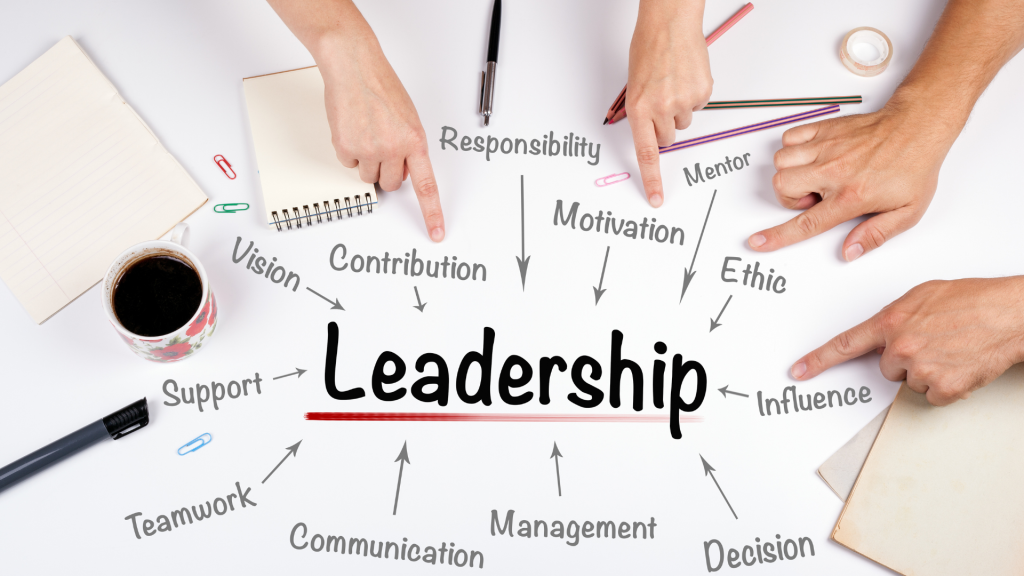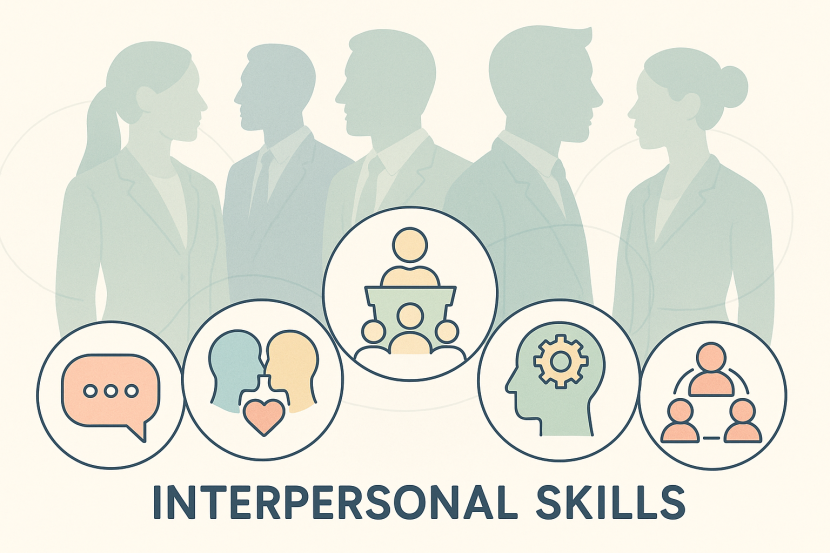Landing your dream job is no longer just about having the right degree or technical know-how. Today’s hiring managers are placing increasing value on interpersonal skills—also known as “soft skills.” These are the behaviors and strategies we use to effectively interact with others in the workplace. In fact, a LinkedIn study revealed that 92% of talent professionals say soft skills matter as much or more than hard skills.
Whether you’re an engineer, designer, marketer, or aspiring manager, these interpersonal skills can give you the edge you need.
1. Effective Communication

What It Means:
Communication isn’t just about speaking—it’s about active listening, clear articulation, body language, and emotional tone. It also includes digital communication through emails, reports, and instant messages.
Why Employers Care:
- Miscommunication costs businesses billions annually.
- Clear communicators build trust with clients, teammates, and leaders.
How to Strengthen It:
- Practice active listening: Nod, maintain eye contact, paraphrase to confirm understanding.
- Improve written communication: Use tools like Grammarly or Hemingway App.
- Join public speaking groups or take online courses on business communication (e.g., Coursera, LinkedIn Learning).
Interview Tip: Use storytelling techniques like STAR (Situation, Task, Action, Result) to demonstrate your communication prowess.
2. Teamwork and Collaboration

What It Means:
This skill reflects your ability to work effectively with others, even when personalities clash or roles overlap. Team players are open to input, share responsibility, and celebrate team success.
Why Employers Care:
- Collaboration boosts creativity and productivity.
- Most jobs require cross-functional teamwork or remote collaboration.
How to Strengthen It:
- Be proactive in group discussions.
- Embrace diverse perspectives and ideas.
- Use tools like Trello, Slack, or Asana for effective team coordination.
Real Example: Mention a time you collaborated with marketing, sales, or product teams to meet a common deadline.
3. Emotional Intelligence (EQ)

What It Means:
EQ is the ability to recognize, understand, and manage emotions—both your own and others’. It includes empathy, self-awareness, and social skills.
Why Employers Care:
- Leaders with high EQ handle stress and workplace dynamics better.
- EQ improves negotiation, client relations, and leadership potential.
How to Strengthen It:
- Reflect daily: “How did I react under stress today?”
- Seek feedback and be open to change.
- Practice empathy by imagining others’ viewpoints in difficult situations.
Pro Tip: Share how you handled a tense situation at work calmly and with empathy.
4. Conflict Resolution and Problem-Solving

What It Means:
The workplace isn’t conflict-free. What matters is how you handle it. This skill reflects your ability to navigate disagreements, propose solutions, and maintain relationships.
Why Employers Care:
- Healthy conflict resolution improves retention and morale.
- Problem-solvers are seen as dependable and level-headed.
How to Strengthen It:
- Avoid knee-jerk reactions—take time to understand both sides.
- Use “I” statements to avoid blame.
- Read on negotiation strategies (e.g., Getting to Yes by Roger Fisher).
Interview Insight: Describe a time you defused a conflict or solved a persistent challenge in a previous role.
5. Adaptability and Flexibility
What It Means:
Adaptability is your ability to embrace change and stay effective in unpredictable environments. It’s vital in fast-paced industries like tech, media, healthcare, and education.
Why Employers Care:
- Jobs evolve quickly. Those who adapt stay relevant.
- Flexible employees handle shifts in direction or leadership with ease.
How to Strengthen It:
- Stay updated with industry trends.
- Accept stretch assignments or temporary roles outside your comfort zone.
- Develop a growth mindset: View challenges as learning opportunities.
Use in Resume: “Adapted quickly to remote work transition, leading to a 20% boost in team productivity.”
6. Leadership (Regardless of Your Role)

What It Means:
Leadership isn’t limited to managers. It’s about influencing, guiding, and inspiring others, even without a formal title. Employers look for people who take initiative and motivate those around them.
Why Employers Care:
- Leaders help steer company culture, boost morale, and drive innovation.
- A proactive attitude is contagious and productive.
How to Strengthen It:
- Take ownership of small tasks and execute them well.
- Help onboard new team members or interns.
- Join leadership-building workshops or mentorship programs.
Story to Tell: “I initiated a new feedback system within my team that improved client retention by 15%.”
7. Positive Attitude and Professionalism

What It Means:
This refers to your consistency, reliability, integrity, and energy. A positive attitude helps overcome obstacles. Professionalism builds trust.
Why Employers Care:
- Optimistic employees foster better work culture.
- Professionalism reflects company values externally (e.g., with clients).
How to Strengthen It:
- Stay punctual and dependable.
- Avoid gossip or toxic work behaviors.
- Express gratitude and enthusiasm regularly.
In Practice: Compliment a coworker’s success and keep an upbeat demeanor during interviews—even when discussing tough challenges.
Final Thoughts: Interpersonal Skills = Career Superpower
In a world where technical skills can be automated or outsourced, interpersonal skills are your true competitive edge. They shape how you’re perceived, how you perform in teams, and how quickly you rise through the ranks.
The good news? These skills are learnable—with practice, feedback, and self-awareness.
Start by identifying one or two skills to work on this month. Take online courses, seek mentorship, and apply what you learn in your day-to-day interactions. Before you know it, you’ll not only ace your next interview—you’ll thrive in your new role.





